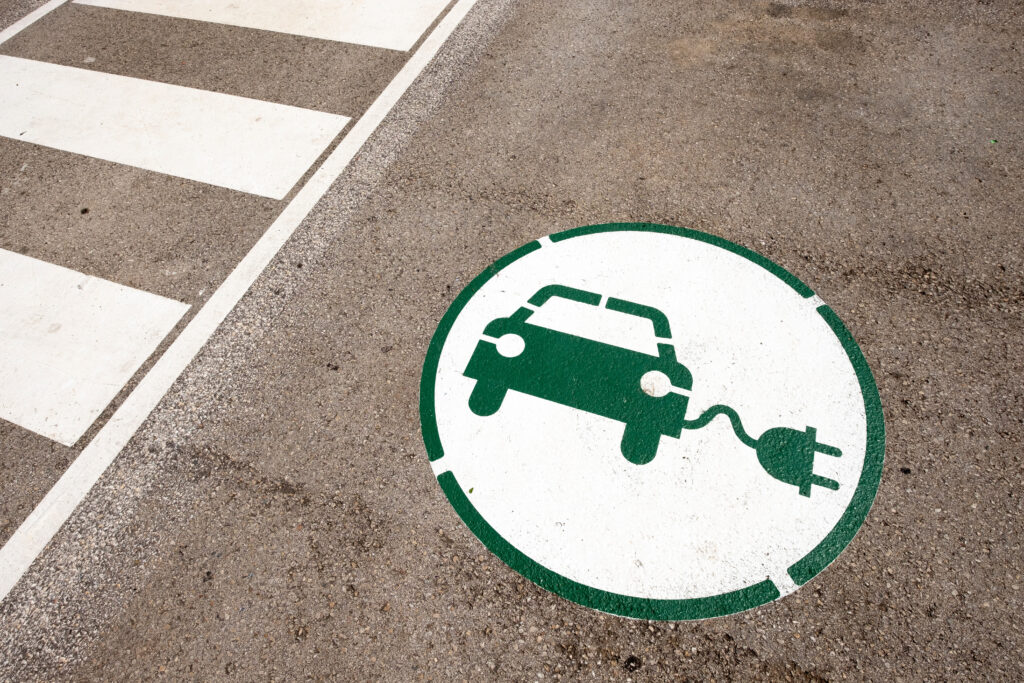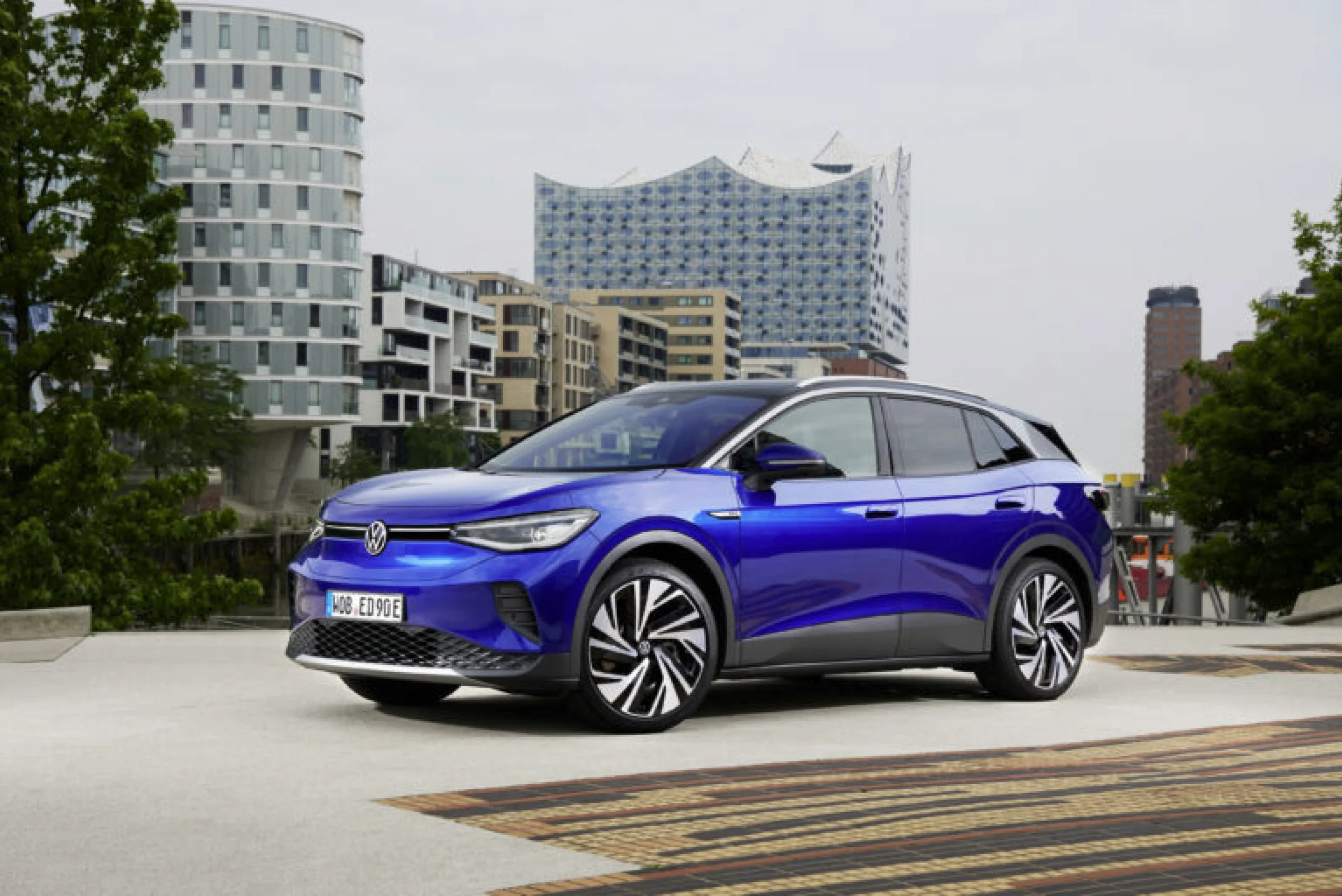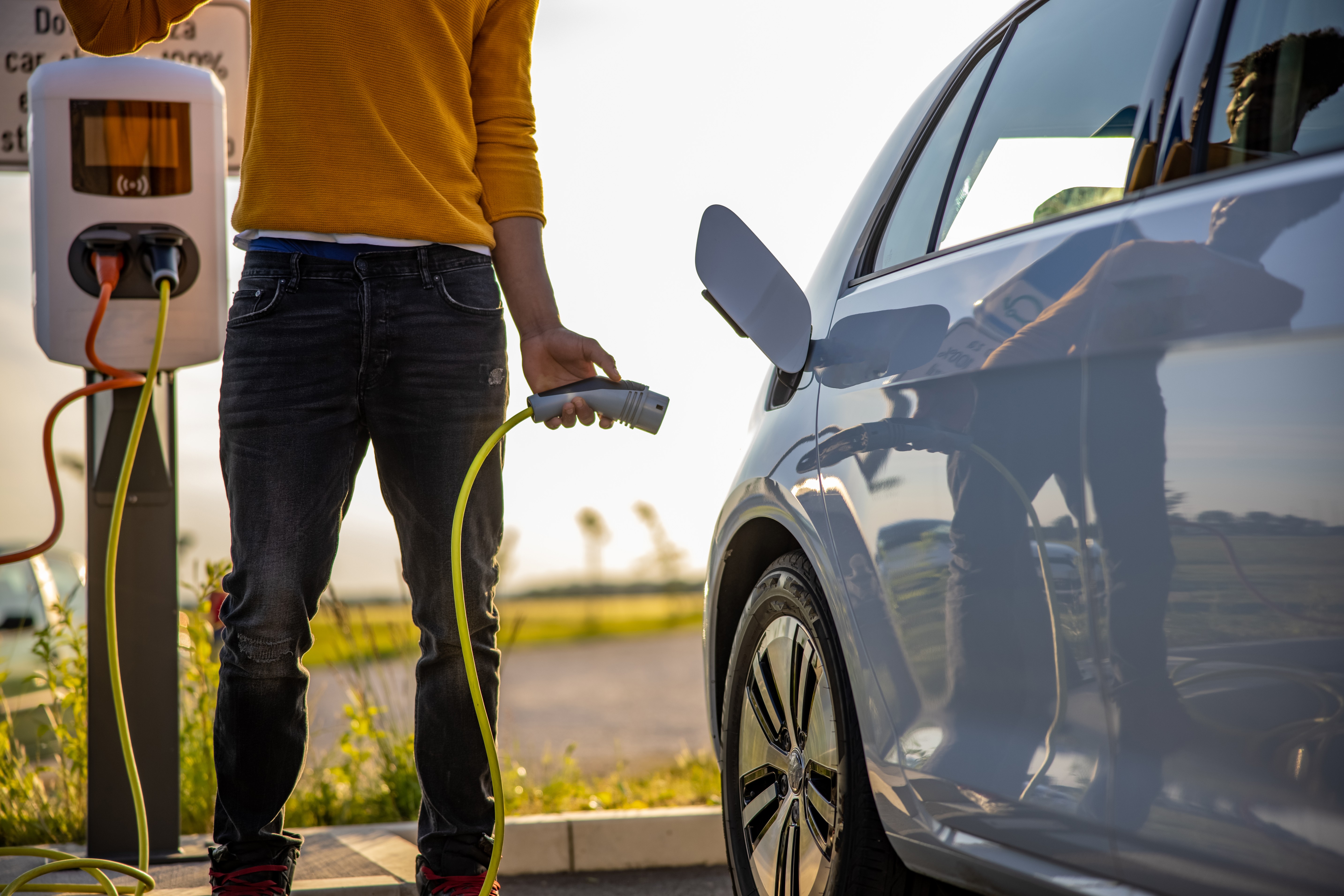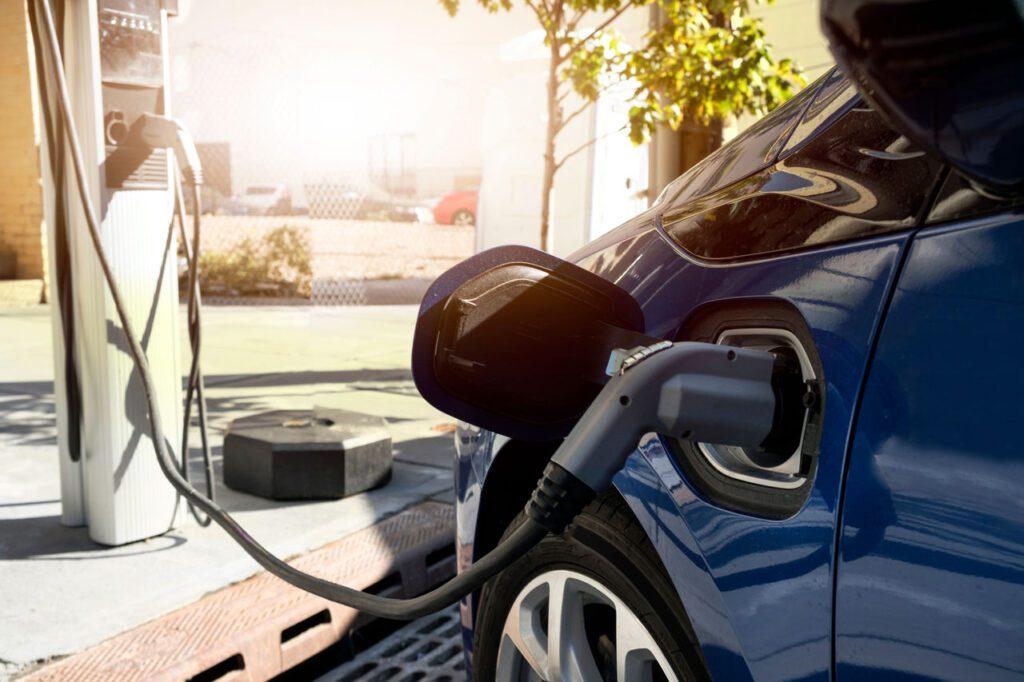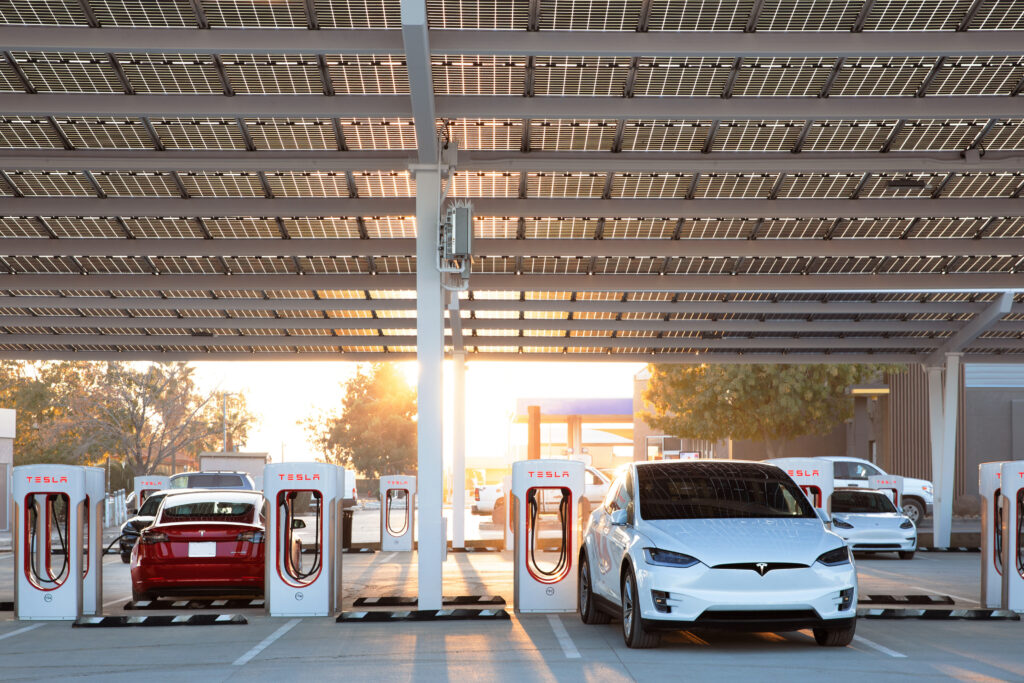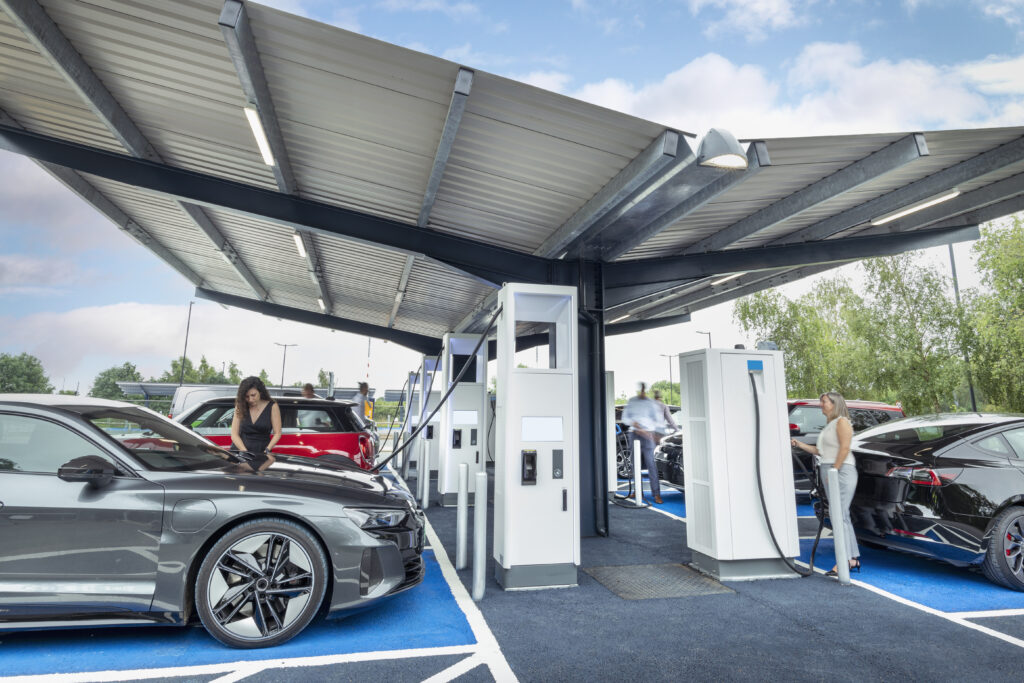
There’s little dispute that electric vehicles are the cars of the future. Between automakers pledging to transition to all zero-emission lineups, states banning gas-powered cars and infrastructure laws limiting emissions, it’s becoming more likely that your next car will be an EV.
With that in mind, it’s becoming imperative to better understand how to operate these green vehicles – particularly, how to charge them. Since most charging is done at home, this means understanding how EV home charging stations work.
Although EV home charging can be as simple as plugging your car into an outlet, there are other factors to take into consideration, including preferred charging speed, efficiency and cost, according to Ethan Brewer, head of electrical operations for Stepwise, a company that installs EV home charging stations.
EV Home Charging
Most electric vehicle owners charge their cars at home. In fact, according to the U.S. Department of Energy, more than 80% of EV charging is done at an owner’s residence. This is obviously the most convenient option – you can charge the car while you’re sleeping, and it’s ready to go in the morning. It’s also the cheapest. Single-family homes have low and stable electricity rates.
Charging your EV at home isn’t free, but it costs substantially less than paying for gas and is usually cheaper than using a public charging station. The Department of Energy estimates that fully charging an all-electric vehicle with a 100-mile range would cost the equivalent of running air conditioning for 6 hours. Because they have smaller batteries, plug-in hybrid EVs would cost even less.
When you compare this to the cost of gasoline, you can see how the savings pile up. Over the past few years, gas prices in the Northeast have been between $3 and $4 per gallon, meaning a person could be spending as much as $1,500 per car each year.
Charging Levels
There are two levels of charging available to you when using your home’s electricity: Level 1 and Level 2.
If you plug your vehicle into a standard 120-volt wall outlet, you’re using Level 1. This is the simplest charging method but also the least efficient. Level 1 charging takes time, adding roughly 3 to 5 miles of range per hour. If you don’t usually drive long distances, this may be more than enough. However, some drivers need to get more miles out of their vehicles on a regular basis.
“A lot of people, including myself, are not comfortable with (Level 1) charging and install a Level 2 EV charger, which adds 30 to 45 miles of range per hour,” Brewer said. “This is much more attractive but does come at a higher cost.”
The cost to have a Level 2 charger installed by a licensed electrician can range from $2,000 to $15,000.
EV Charging Station Installation Cost
“Before getting started, homeowners should solicit estimates from several electricians,” said Brewer. “This will allow you multiple points of reference to question contractors on what their installation includes and how thorough they are. If one contractor tells you that your only option is a service upgrade and another offers you a lower-cost charger management system, wouldn’t that be nice to know? This will give you more insights into what is being done and leave you feeling better about who performs the work.”
Also, ask the electrician you select to obtain any required permits and schedule inspections to ensure the installation meets safety and regulatory standards and is insurable in case of failure, Brewer added.
Level 2 charging isn’t a matter of flipping a switch or purchasing a different power cord. Instead, special charging equipment must be installed in your house. These units, known as electric vehicle supply equipment, can range in price from a few hundred dollars for an EV charging cable that plugs into a 240-volt, 20-amp outlet to several thousand dollars for a hard-wired, internet-connected smart charger.
Chargers themselves range anywhere from $350 to $700, paired with installation costs of between $800 to $1,500.
There are several factors that could bump up the price, such as whether your house needs an electrical upgrade or a remodel to allow the unit to connect to the house’s electrical supply. “Remember that a car charging station at home can use over 50% of your electrical panel capacity,” noted Brewer.
Incentives, Tax Credits
The federal government, as well as some states and utility companies, offer incentives and rebates for installing home charging stations, according to Brewer.
Federal tax credits: Homeowners may be eligible for a federal tax credit of up to 30% of the installation cost, up to $1,000, for residential EV charging equipment. However, it is essential to check the current tax laws and eligibility criteria.
State and local incentives: Many states and local municipalities offer incentives, rebates, or grants for EV charger installations to promote sustainable transportation. These incentives vary by location, so homeowners should research programs available in their area.
Utility programs: National Grid and Eversource both have home charging incentive programs. To be sure that you will qualify, have your installation estimates in-hand before calling to ask about rebate options.
Outdoor Home EV Charging
Most owners charge their EVs from the garage, but both Level 1 and 2 charging can also be done outside. Most EVs come with their own cord, but for outdoor Level 1 charging, you may need to invest in a longer cord that can reach from your home to the vehicle. It is dangerous to use a Level 1 charger with an extension cord.
You can also opt to install the charging station itself outside. If you go with this option, install the unit in a location where the wires can be connected safely. You’ll also want to choose your charging station wisely. Some are more weather-proof than others.
AAA’s Recommendation: Whether you own an electric vehicle or a gas-powered car is up to you – and you should consider lots of factors in making that choice. No matter what type of vehicle you’re choosing, we recommend visiting a dealership, test driving one, and asking as many questions as possible to make an informed decision.

